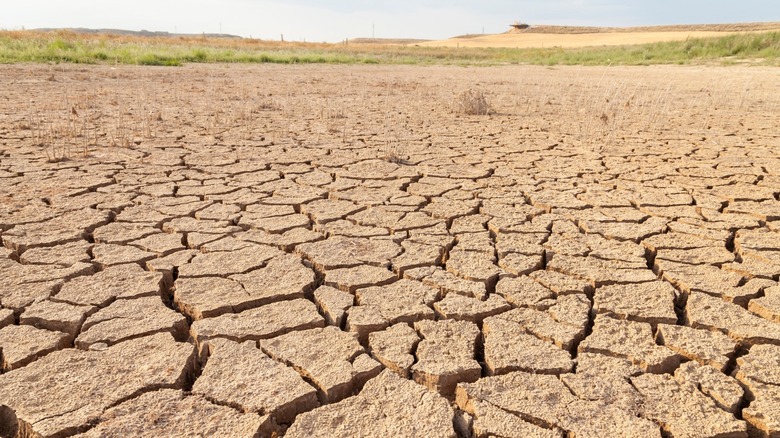Why New Pandemics May Thrive In The Age Of Climate Change
While we all hope we never see another pandemic, the chances of that happening are low, according to a 2021 study published in the Proceedings of the National Academy of Sciences. In fact, scientists expect the chances of a similar epidemic will increase roughly threefold in the coming years. Additionally, it is 38% more likely that people will face a pandemic during their lifetime, with this statistic potentially doubling in the future, per ABC News.
Willian Pan, an associate professor of Global Environmental Health at Duke University and one of the study's authors, explained to ABC News that the future probability of pandemics is largely due to climate change. Specifically, it's linked to its impact on the transmission of infectious diseases from animals to humans, also known as zoonotic diseases. Transmission can occur either through direct contact with an animal or indirect contact, such as through contaminated soil or water, per the Centers for Disease Control and Prevention (CDC). Pan told ABC News that as animals migrate closer to the poles to escape the heat, this could lead to a spilling over of germs among species that do not normally co-mingle, potentially creating viruses.
Dr. Aaron Bernstein, director of the Climate MD program at the Center for Climate, Health, and the Global Environment at Harvard University's Chan School of Public Health told ABC News that tackling climate change and protecting habitats is crucial to prevent pathogens from moving from wild animals to livestock and ultimately to people.
How to stay protected against future pandemics
While the potential for serious viruses and more pandemics is not welcome news, there are measures you can take to arm yourself against becoming infected, no matter the type of virus.
The Cleveland Clinic explains that infectious diseases can be caused by viruses, bacteria, fungi, or parasites. Viral infections, like COVID-19, are caused by invading organisms entering your cells and using that environment to reproduce. Viral infections typically enter your body through your nose and mouth, so being mindful of protecting these points of entry is key.
According to the Harvard Medical School, one of the most important things you can do is maintain good hygiene. By now, you have heard this advice countless times, but it is crucial it bears repeating — wash your hands regularly with soap and water, and wash them well. Get under your fingertips and make sure to get the back of your hands and your wrists. Additionally, you can reduce your chances of getting infected by others by not sharing utensils, glassware, napkins, tissues, and similar items.
Experts also strongly advise that you stay up to date on all standard vaccinations. Consult your doctor several months prior to travel if you are planning a trip outside of the United States and require immunizations. Stay away from wild animals to avoid rabies and other viral diseases, per the Harvard Medical School.


